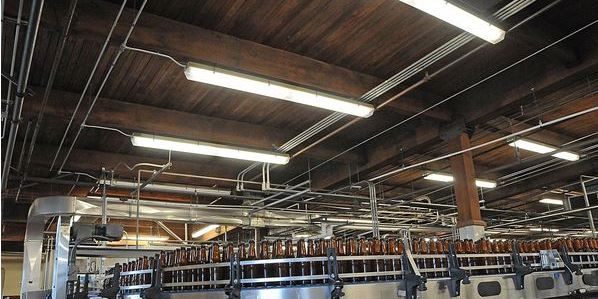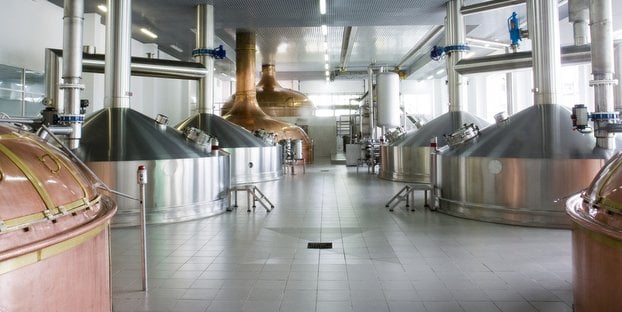
So you’re in Michigan and want to open a microbrewery. If this desire is more than talk after downing a couple high alcohol beers, here’s a brief list of steps to move forward with your dream project.
1. Research. Owners of other microbreweries are a great source of knowledge. They’re a unique breed. You might think that they wouldn’t be willing to help other brewers out of fear of competition, but most microbrewery owners generally believe that more breweries are actually better for the industry.
2. Develop a Business Plan. Once your research is done or well under way, you should be able to develop a business plan that you will be able to share with potential lenders or investors. Your business plan should be reviewed by your CPA and your attorney before you share it with others.
RELATED: Craft a brewing business plan: Tips from a brewery in planning
3. Formation of Companies. If you plan on purchasing the real estate that will be needed for the brewery, the best strategy is to form two companies — a limited liability company (LLC) to own the real estate and an S Corporation or an LLC to own and operate the business. The LLC will lease the real estate to the microbrewery.
There are a number of reasons for placing the real estate into its own entity. Foremost, because the entity operating the microbrewery will have the greatest liability exposure (patron and employee liability), it is wise to put the most valuable asset (the real estate) into a separate company. A second reason is that there is a tax advantage to the owners of the LLC to lease the real estate to the entity operating the microbrewery. There may also be some tax advantages for the company operating the microbrewery to be formed as a C Corporation, but you will need to discuss that issue with your CPA or attorney to see if an S Corporation is best for your situation. The company documents will obviously need to address the time and financial commitments of the owners, as well as how decisions are made, and buy/sell events.
4. Secure the Brewery Location. Because of the unique improvements that need to be made to any real estate to operate a brewery, more than likely you will desire to own the real estate. You should be in contact with the city or township leaders early on in the process to make sure any site is compliant with zoning requirements, to see if there are any local economic development dollars available, and to get the leaders on board with the project because ultimately it will need local approval before the Michigan Liquor Control Commission (MLCC) can issue the license.
You also need to be aware if the site is within 500 feet of a church or school. Any church or school within 500 feet of the proposed microbrewery location can oppose the license before the MLCC, and a hearing will be scheduled to decide the issue. If the site is within 500 feet of any church or school, those churches and schools should be approached to determine their position on your location plans.
5. Licenses from MLCC, TTB and County Health Department. The operation of a microbrewery requires a license from the Michigan Liquor Control Commission (MLCC) and filing a “Brewer’s Notice” application with the federal Alcohol and Tobacco Tax and Trade Bureau (TTB).
The MLCC application is very detailed in terms of the information that needs to be included. More than likely, you will be submitting the application for a microbrewery (under 30,000 bbls) as opposed to a brewery. Once the MLCC receives the application, an investigator will be assigned and a meeting scheduled with the applicant. It is important to have all the company documents, including loan and lease documents, and bank statements of the business and its owners showing sources of funds, available for this meeting. Fingerprints of the owners will also be required as part of the licensing process. If the microbrewery will be serving food, you will also need to get a food license from the County Health Department.
6. Build-out of Microbrewery. Either a new building will need to be constructed or an existing building remodeled. Either way, architectural and construction contracts will need to be reviewed by a real estate attorney. The final build-out must also be inspected by the MLCC before the microbrewery license will be issued.
7. Recruiting a Brewer. Unless you have the experience, you will need to recruit an experienced brewer. So, you will need to determine what compensation package will be necessary to attract a qualified brewer.
RELATED: Brewery compensation series part 1: How to pay your brewers
8. Walk before you Run. Most microbreweries grow in phases. The first big hurdle is to open the door with great tasting beers. The next big hurdle is often expansion, either for additional space and/or a bottling or canning line. So, if available, an option should be sought on any adjoining land to allow for future growth. Determining whether you can finance the expansion or if you need to seek additional investors is a decision that should be made based on the financial aspects of your microbrewery.
If additional investors are desired, you will have to revisit your MLCC filings and review your current Stockholders Agreement/Members Agreement to address how the additional owners will figure into decision-making and buy/sell events, to name just a few issues. Your bank, CPA and attorney should also be consulted. And you will need to make sure you comply with state and federal securities laws.
 An earlier version of this post was featured on the website of Kreis, Enderle, Hudgins & Borsos, P.C. — a law firm with multiple locations in Southwest Michigan. Dan McGlinn is an attorney in their Kalamazoo office.
An earlier version of this post was featured on the website of Kreis, Enderle, Hudgins & Borsos, P.C. — a law firm with multiple locations in Southwest Michigan. Dan McGlinn is an attorney in their Kalamazoo office.





Alexander Basa liked this on Facebook.
Aaron Charles liked this on Facebook.
Mike-Kathy Hilligan liked this on Facebook.
Mark Sellers liked this on Facebook.
Anthony Holloway liked this on Facebook.
James Hilligan liked this on Facebook.
Alex Miller, SteveandJackie Cotta
Julian Paul Butt liked this on Facebook.
FormPak Inc. liked this on Facebook.
Belgian-Style Ales liked this on Facebook.
Todd Parker liked this on Facebook.